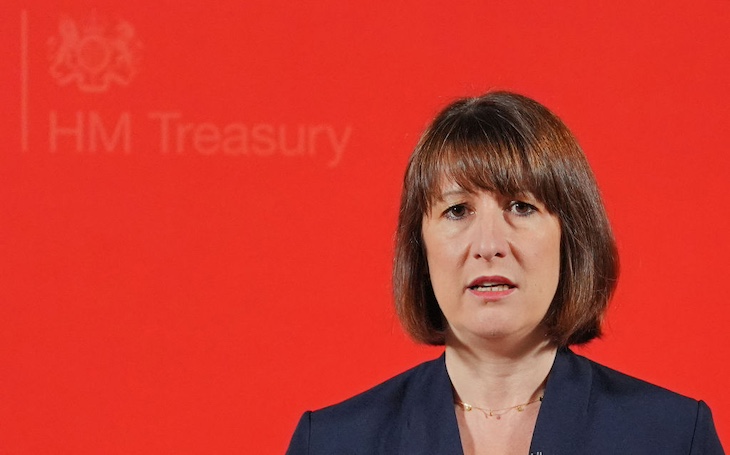The question of whether to scrap winter fuel payments to all but the poorest retirees is a very British debate, in that it’s any sort of debate at all. Rachel Reeves’s reforms are estimated to save £1.3 billion this year and £1.5 billion in subsequent years. That’s not nothing but, for a sense of scale, it’s equivalent to half the devolved Welsh government’s annual climate change budget. Meanwhile, the UK has a fiscal deficit of £120 billion and the Treasury is borrowing £1,780 per capita to meet public expenditure priorities. Government borrowing is at its fourth-highest level since 1993. Public sector net debt stands at 99.4 per cent of GDP, a level last seen in the early 1960s. Our annual welfare bill is £319 billion, of which the most expensive item is the state pension at £124 billion. Our health spending last year was £212 billion. That the Chancellor had to fight to save a puny £1.5 billion a year is an ominous sign for this government and anyone who hoped that it might be able to attack the structural faults in Britain’s economy.
If we’re not prepared to pay for social protection, resources will have to be rationed
True, the Chancellor was up against legacy attitudes and assumptions about pensioners and poverty. Between the early 1960s and the early 1990s – with a brief blip in the early 1980s – the age group that experienced the highest incidence of poverty was the over-65s, and it wasn’t even close. I was born in the 1980s and for all of my childhood and adolescence, the terms ‘pensioner’ and ‘poverty’ were almost synonymous. Our social consciousness is formed early, hardens fast, and takes time to dislodge. You can test this by stating out loud these two facts: 1) one in four (27 per cent) British pensioners live in a millionaire household, and 2) that the median individual wealth of a 65 to 69 year old (£355,800) is almost 15 times that of a 25 to 29 year old (£24,200). Many over-40s will refuse to believe you; most under-40s will sigh in resignation.
Reeves was also up against a large and vocal demographic that believes itself more entitled to resources than other demographics, whom it deems any spending on to be wasteful or illegitimate. This is why we’re not allowed to call the state pension a welfare benefit even though that is precisely what it is. In the grammar of British social attitudes, an entitlement is something I get, a benefit is something you get, a handout is something they get, and taxpayers’ hard-earned money is something asylum seekers get.
My personal preference is for a policy landscape that includes a winter fuel payment for retirees as part of a comprehensive system of social protection, because pensioner poverty is rising, private sector workers are half as likely as their public sector counterparts to have a pension, and asset wealth is generally difficult to access. But the social arrangements I favour would require people to pay more in taxation, and if Britons think of spending as something that should go to them, they most definitely think of tax rises as something that should go to others.
If we’re not prepared to pay for social protection, resources will have to be rationed, which is what the Chancellor has done. Whether it was wise politics is open to question; whether it passes muster as fiscal policy given its modest impact on the deficit is also a matter for debate. But a marker has been set down with the vehemence of the backlash against Reeves. When the Chancellor is cast as an aspiring granny-killer, Harold Shipman with a power bob, for means-testing a minor benefit, you have to wonder what chance the government stands of making the kind of major structural changes needed to revive a flatlining nation. Freeing up the housing market by cutting red tape and increasing supply? Angela Rayner wants to turn your garden into a building site. Reforming the NHS and its funding model? Wes Streeting’s going to flog your local A&E to McDonald’s. Realigning Britain with the single market to increase trade opportunities? David Lammy: betrayer of Brexit.
Whether Labour’s prescriptions for saving the UK are correct, or whether the Tories, Lib Dems or Reform have better policies, is almost immaterial. Whichever party was in power would be faced with the same stubborn obstacle: a country that will resist every attempt to save it because it has no idea how urgently it needs to be saved.








Comments